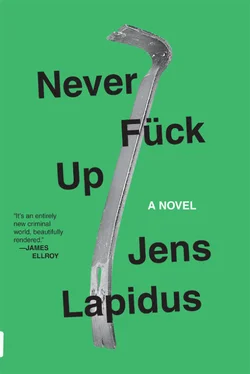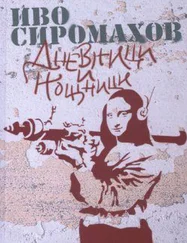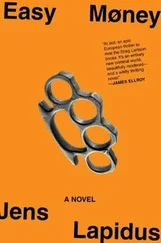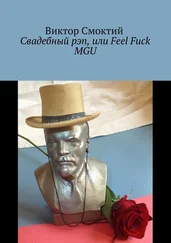Everything’d gone so fast. Just a little while ago, he’d been sitting in a courtroom, about to be detained. And now: the final battle. He thought about his mom. She didn’t understand anything. Thought repression was intrinsic to life, built in. He remembered. He was maybe eight years old, but he still understood more than they thought. The bags that Claes brought home, the mood when he and Marie’d started gulping from their glasses, which they refilled quickly with whatever was in the bottles. They told him to go down to the basement for an hour or so. He had his own life down there. He didn’t remember exactly, but something scared him. Maybe it was a sound, or maybe he saw something. He was a child then. Thought the fear down there was the worst thing in the world. When he came upstairs, he saw Mom being beaten more than he’d ever seen before. She had to go to the hospital. Stayed there for two weeks.
Afterward, he’d asked Mom if it was right. Should Claes really be allowed to come over to their house? Should it really be like this? Her answer was simple but firm: “I’ve forgiven him. He’s my man, and he can’t help that he gets angry sometimes.”
It was Niklas’s duty to restore balance.
He placed the bomb on Bolinder’s chest. The old guy was fluttering like a flag in the evening breeze outside Falluja. In contrast: Niklas’s hands were steady.
66

Thomas came up the stairs. Something was wrong. First the explosion at the same time as the fireworks. He could’ve misheard. But not what followed: the peppering that sounded parallel to the rest of the New Year’s spectacle—even a simple cop like him, who was used to his little 9-millimeter SIG Sauer, knew what that was: assault weapons. He was a gun freak, after all. Completely clear: something was really fucking wrong.
As soon as his phone had service again, he called Hägerström. It rang once. More rings went through. Was he not going to pick up? Thomas looked around. The room with the hypercolorful wallpaper was empty. He peeked through the opening in the doorway to the room with the paintings. Empty. He tried to call Hägerström again. Five rings. Then there was Hägerström’s panting breath on the other end of the line: “Good, you’re alive.”
Thomas whispered into the receiver, “What the fuck is happening?”
“I don’t know, but I’ve called for backup. There was insane shooting going on somewhere inside the building where you are. And an explosion that sounded like they were blowing something up.”
“When is backup getting here?”
“You know, it’s New Year’s Eve, on Smådalarö, out in the archipelago. They won’t be here for another twenty minutes, at best.”
“Fuck. But what should I do? Something’s definitely going on in here.”
“Just wait for the squad cars. I can’t get past the gate by myself.”
“No, Hägerström, that won’t cut it. This is our chance to get some hard evidence. I’ve got to see what’s happening. It might be connected to our case.”
Hägerström was silent. Thomas felt a drop of sweat on his forehead. He waited for Hägerström’s response. Would he support him in this or not?
Hägerström cleared his throat. “Okay, take a quick look. But for fuck’s sake, don’t do anything stupid. You said it yourself—this could be the solution to our case. So don’t blow it.”
Thomas put his cell phone back in his inner pocket. Groped for his gun. Looked at it for a second. Fully loaded. Recently cleaned. Safety on. Felt good.
Thomas went back into the salon where all the paintings were hung. Then into the entrance hall.
His first discovery surprised him: the huge Yugo—the bouncer—in a heap on the floor. Around his feet, his forearms, and his mouth: looked like miles’ worth of duct tape. A puddle of blood on the floor—the guy’s knee: ground meat mixed with pants fabric. The guard was staring sluggishly into space. Thomas bent down. Ripped the tape from his mouth in one tear.
“What happened?” he whispered.
The guard seemed groggy. Maybe the loss of blood, maybe the shock, maybe he was on his way out. Thomas loosened the tape on his forearms. The guard: completely silent. Thomas listened to his breathing. It was there. Thin but still clear. He used the tape he’d torn off to wrap the wound on his knee. Tightened—tried to stop the flow of blood. Better than nothing. Checked the guy’s back, stomach, head—he didn’t seem to be injured anywhere else. Thomas placed him in the recovery position. The guard would survive.
Thomas texted Hägerström: Call amb. Pers shot in knee.
Moved on. Silence in the house. The beat, the music, the laughter couldn’t be heard anymore. The house felt like a grave, like the basement where he’d found Claes Rantzell. Thomas thought about the guard’s breathing: so thin. Like the air in this house. Like this entire investigation. It might all go to hell now—Bolinder’s bizarre party, the Yugos’ involvement, the payments to Rantzell, the key witness in Sweden’s most important trial.
Everything was thin.
Thomas stopped.
Took a deep breath. Was there something wrong with the air in here?
Felt like he was getting less oxygen. As if he was forced to breathe deeper. As if his lungs needed more.
He raised his gun. Closed his eyes. Saw an image in front of him. A boy. A face.
Sander.
Then he opened his eyes.
It was time to keep going.
Made his way through a couple of rooms. Empty of people. Colorful wallpaper, paintings, a sculpture or two, the right lighting, the right color choices, the right designer furniture. Couches, armchairs, Persian carpets, harmonious feel. Thomas thought, These types of men hide their real selves behind fancy art that no ordinary people understand. Criminal classic—the bigger the crook, the bigger the artists on the walls. It felt good to relax into a normal, bitter line of thought.
He walked through a hallway. The lighting was built into the floorboards.
He grabbed hold of the door handle. Carefully. Slowly. Pushed down. The door opened outward. A crack. He raised his gun. Sank down to his knees to be safe. Looked in.
A large room. The crystal chandeliers in the ceiling were the first things he saw. The room felt too bright. It sparkled. Immediately thereafter he saw the people. At least fifty of them. Men and women. On their stomachs, hands over their heads. Facedown on the floor. Thomas couldn’t see who they were. Could only guess.
He looked closer. Three people were lying in front of them. Taped up, folded up. One of them looked like he was unconscious. The second one was just staring, wide-eyed. The third: wrapped in something. A heavy-looking plastic bag on his stomach. A wire led from the plastic bag to a small gray box.
There were two more people in the room. Two men with concealed faces. Ski masks rolled down, dark clothes; they looked like they were wearing bulletproof vests underneath. Maybe they were pros. One was thinner, with a Beretta in one hand and maybe something else in the other. Standing a little way off from the people. Steady, calm, focused on safety. The other was incredibly beefy. He approached the group on the floor. Said, in crap English, “Everyone hands over their watches and wallets. Now.” Thomas could distinguish a thick Swedish immigrant accent in the English. Clear: this was a Swedish blatte .
He looked again. These weren’t real pros—the beefy guy was wearing light-colored sneakers.
Thomas read the situation. Weighed possibilities. Judged alternative courses of action. What he should really do is get out. Report to Hägerström where the hostage holders and the people were. Wait for backup. Let things take their course.
Читать дальше













